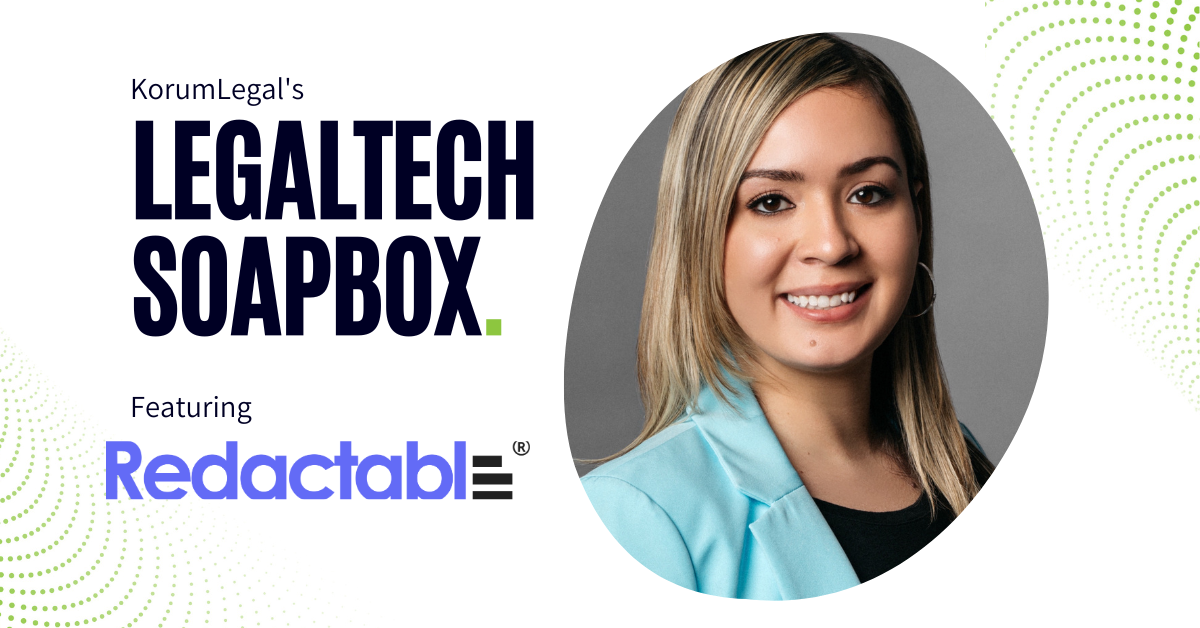LegalTech Soapbox: Streamline and safeguard your daily operations with Redactable.

1. Hi Amanda, tell us the story behind Redactable.
As a loan consultant, I discovered firsthand that simply drawing black boxes over sensitive information in PDFs didn't actually remove the data, posing a significant data risk to users. This realisation inspired me to develop Redactable – a solution that transforms the manual, error-prone process of redacting sensitive information into an automated, reliable workflow. Our platform now helps organisations across legal, healthcare, and government sectors redact confidential data, achieving 98% time savings in comparison to using Adobe or manual methods.
2. What services or products does Redactable provide?
Redactable is an AI-powered redaction platform that ensures permanent and complete removal of sensitive information from documents. Our cloud-based solution offers:
- Automated detection and removal of sensitive data
- Permanent redaction with complete metadata removal
- Audit-proof redaction trails for compliance
- Integration with popular cloud services like Box and Google Drive
- Team collaboration features for secure document handling
What sets us apart is our focus on true data removal – not just visual covering – and our commitment to maintaining the highest security standards, including HIPAA compliance and SOC 2 Type 2 certification.
3. How does the above optimise the daily operations of an in-house legal team/ law firm?
Redactable transforms how legal teams handle sensitive documents in three key ways:
- First, our AI automation reduces document processing time by 98%, allowing legal professionals to focus on higher-value tasks instead of manual redaction.
- Second, we eliminate the risk of data breaches from improper redaction. Our platform ensures the complete removal of sensitive information, including hidden metadata, protecting the firm and its clients.
- Third, our platform provides audit-ready documentation of all redactions, helping teams maintain compliance and demonstrate due diligence. This is particularly crucial for firms handling HIPAA, GDPR, or other regulated data.
4. What do you believe will be the most significant change in how in-house legal teams use technology in the next 10 years?
I think the most significant shift will be transitioning from manual tools to integrated, AI-powered workflows. We're already seeing legal teams leveraging AI and automation to enhance how legal work gets done. This transformation will be particularly impactful in data security and compliance. As privacy regulations become more complex, manual processes are unsustainable and inefficient.
On the whole, the future of legal technology isn't just about speed – it's about creating intelligent systems that reduce human error while ensuring ironclad security and compliance.
Lily Evans and Amanda Levay
Oct 20, 2025
Related Posts.
By: Lily Evans and Oscar Villanueva Cañizares
LegalTech Soapbox: Improve your daily operations with Nymiz
1. Hi Oscar, tell us the story behind Nymiz
We founded Nymiz in February 2020 as a spin-off from a company specialising in anonymising legal rulings for the Spanish judiciary. Shortly thereafter,..
By: Lily Evans and Darsan Guruvayurappan
LegalTech Soapbox: Automating law with LucioAI
1. Hi Darsan, tell us the story behind LucioAI.
Between 2020 and 2023, Vasu and I observed that around 20% of lawyers joining law firms were leaving their roles within two years. We interviewed..
